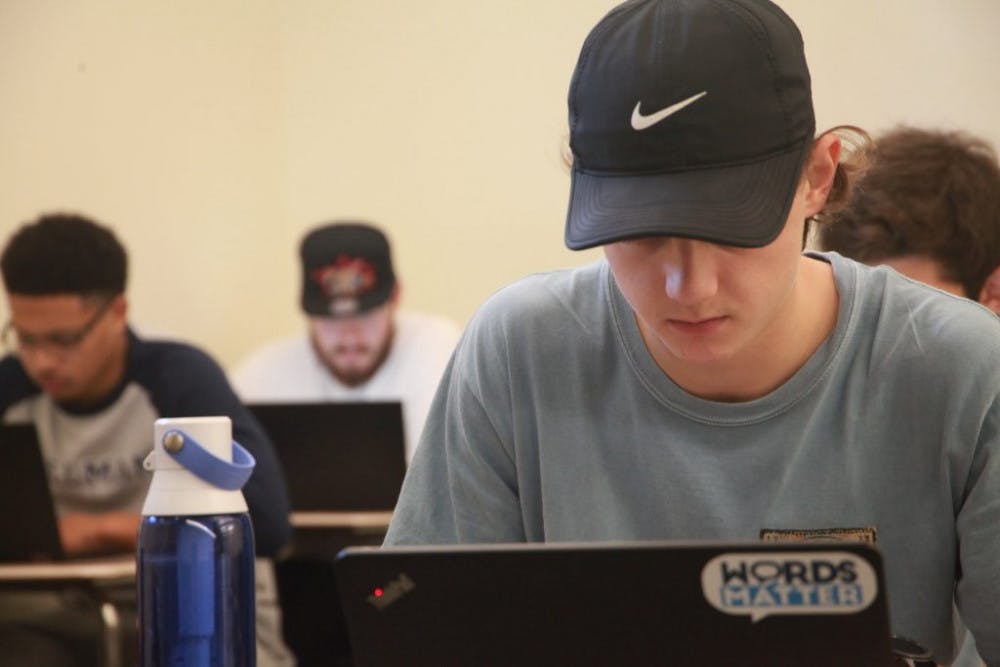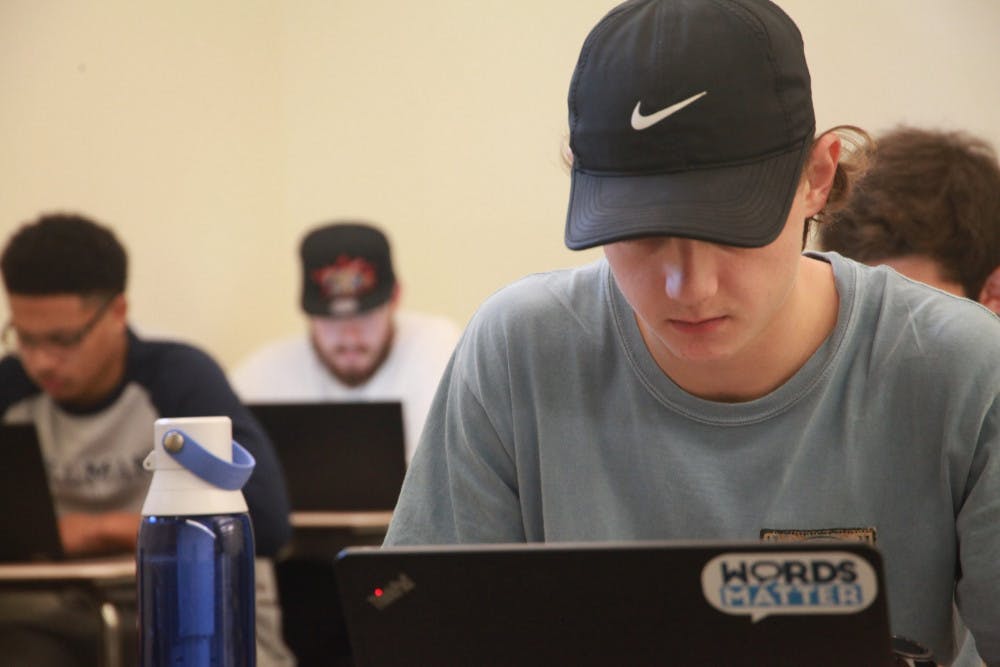The contents of a mobile computing program survey presented by Seton Hall University administrators to the faculty senate on Feb. 14 was obtained by The Setonian this week, offering new insight into the mindset of faculty members and students regarding a proposed shift of the program.

The presentation, which was linked within the minutes of the Feb. 14 meeting of the faculty senate, contained key information that was not publicly presented to the Student Government Association (SGA) at a similar meeting on Feb. 10. The singular slide presented at the SGA meeting was only the first of several slides publicly shown that contained data of student and faculty dispositions on the laptop program as well as an analysis of peer institutions’ mobile computing programs. The full slideshow, which contained a richer analysis of student and faculty opinions on the program, was made available to SGA via a private shared drive.
According to the survey conducted by the University, only "40% would purchase a new computer or laptop" if the mobile computing program were eliminated while 43% would use a laptop they already owned. Nine percent said they would have no access to a computer at all. The presentation also noted that 91% of faculty respondents agreed that “students would still need access to some computing resources for completing assignments for their course.”
The Setonian’s own independent survey found that 67% of incoming students had a laptop prior to coming to Seton Hall, but of that percentage 45% said that their laptop was four years or older, an age that university officials said would likely not meet the minimum required standards the university would set under a “bring your own device” program.
Additionally, the University found that 69% of student respondents reported that they would rather stay in the current mobile computing program with a cumulative $675 fee per semester (comprised of a technology fee and a mobile computing fee) rather than switch to a bring your own device program.
Seventy-four percent said that they prefer the current Mobile Computing Program where the University provides all the current services such as a laptop, software and technical support.
At the Feb. 10 SGA meeting, University Chief Information Officer Stephen Landry said that Seton Hall did not have any interest in continuing conversations with Follett unless there was support for the new program among the student body.
“We did not want to spend that time [hammering out an agreement with Follett] unless there was support from the University community to proceed,” Landry said. “So, I guess that's why we're here. Do you see any reason why we should not continue our discussions [with Follett]? Because we’ve only had very preliminary discussions at this point.”
In an interview with The Setonian, Chief Financial Officer Stephen Graham sought to clear up Landry’s sentiment.
“We didn't want to get too far down the road of conversation with Follett in terms of hammering out a contract until we had directional feedback in terms of 'is this something that would be well received?'” Landry said.
Landry went on to clarify that the survey results showcased in their presentation and the results collected in a Setonian poll were only continuing students responding to it.
“Our plan is for this to have very little impact on continuing students and we would be continuing the same level of service they get,” he said. “The only major difference would be that there would be no more refresh.”
When asked why the opinions of current students might be radically different than the opinions of future students, Graham replied that it is easier to take a program away from someone who has never spent time in it.
“You know, 99.9% of the schools in the country provide a BYOD program or an environment that students have their own device,” Graham remarked. “So, any new student coming in, they would be comparing us against the experience at every other school. Part of it is purchasing their own computer.”
The new statistics also undercut the arguments of proponents of the program, including the two current candidates for SGA President, who have argued that choice and lower costs have become priorities for students despite the overwhelming support for the current program.
SGA Senator Stefan Ferreria, who announced last Monday that he was running for SGA President against fellow Senator Julia Nicolls, told The Setonian in February that the decision to cut the program was a “no brainer,” and said that “it’s great to know our school is cutting unnecessary student costs and modernizing its approach to technology.”
Nicolls also said in an email to The Setonian back in February that she supported the cutting of the program.
“Considering 75% of students come into college with a functioning laptop, it seems trivial to make students pay for it as part of their tuition, especially considering the consistent rise in college tuition over the last several years,” Nicolls said. “By allowing students to have a choice in the matter it upholds the integrity of the original program but gives students more freedom in the decisions they make.”
So far, neither candidate has mentioned their support for the proposed elimination of the mobile computing program in their campaign communications.
Nicholas Kerr can be reached at nicholas.kerr@student.shu.edu. Find him on Twitter @nickkerr99





